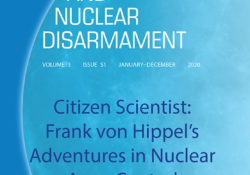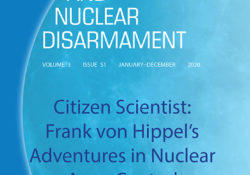tandfonline.com har udgivet en rapport under søgningen “Teacher Education Mathematics”: Scientist of the week: evaluating effects of a teacher-led STEM intervention to reduce stereotypical views of scientists in young children Link til kilde
Like this:
Like Loading...
tandfonline.com har udgivet en rapport under søgningen “Teacher Education Mathematics”: ABSTRACT ABSTRACT In Science as a Profession and Vocation, Max Weber presents a clear task to scientists: he claims that they have the responsibility to present uncomfortable knowledge to politicians, students and others to prompt them to reconsider their value judgments. This clear appeal is a welcome message in the current debates on the social and political role of scientists. It is especially interesting because it is at odds with acclaimed ideas about the role of scientists, such as those of Pielke, Flyvbjerg or Kitcher. Unfortunately, Weber’s sociological work, although it reflects this appeal to scientists in many respects, does provide a normative support for it. This article argues that a virtue ethical framework can be integrated into Weber’s position… Continue Reading →
Like this:
Like Loading...
tandfonline.com har udgivet en rapport under søgningen “Teacher Education Mathematics”: ABSTRACT ABSTRACT In this part, von Hippel discusses how his focus shifted in the first decade of the 21st century to a set of new concerns evoked by the terrorist attacks of 11 September 2001 and the G.W. Bush administration’s retrograde policies with regard to nuclear arms control and nonproliferation. During this period, he co-founded the International Panel on Fissile Materials so that policy activists working in opposition to nuclear arms races and fissile material production in different countries could work together. He also focused on fostering another generation of activist scientists engaged with the nuclear arms control and nonproliferation agenda. Link til kilde
Like this:
Like Loading...
tandfonline.com har udgivet en rapport under søgningen “Teacher Education Mathematics”: ABSTRACT ABSTRACT von Hippel describes a transparency tour during the summer of 1989 to the Soviet Union’s first plutonium-production complex in the Urals and to the Soviet test site for anti-satellite lasers in Kazakhstan. In December 1991, immediately after Ukraine declared independence, he participated in a mission to persuade it to return its nuclear weapons to Russia. He describes the thus far unsuccessful effort to dispose of the weapons plutonium that the US and Soviet Union declared excess at the end of the Cold War. The discussion then turns to the US-Russian lab-to-lab program in which the US nuclear-weapon laboratories helped Russia upgrade the security of its plutonium and highly-enriched uranium for the new and more open environment and to… Continue Reading →
Like this:
Like Loading...
tandfonline.com har udgivet en rapport under søgningen “Teacher Education Mathematics”: ABSTRACT ABSTRACT The development of professional identity during a short-track teacher education program is studied. This article presents how individuals with a strong background in natural sciences describe the teacher education in which they participate. Individual interviews were conducted with 6 student teachers with a doctorate in natural sciences and extensive work experience in science-related professions on 5 occasions during their teacher education. We suggest that shared ways of talking about education and teaching practice can be described as phases summed up as cautiously positive, rejection, acceptance, and complexity. It is argued that problems of development of professional identities can be understood in relation to the design of the teacher education under study, and failure to acknowledge the development of… Continue Reading →
Like this:
Like Loading...
eric.ed.gov har udgivet: How does the mind work–and especially how does it learn? Teacher’s instructional decisions are based on a mix of theories learned in teacher education, trial and error, craft knowledge, and gut instinct. Such knowledge often serves teachers well, but is there anything sturdier to rely on? Cognitive science is an interdisciplinary field of researchers from psychology, neuroscience, linguistics, philosophy, computer science, and anthropology who seek to understand the mind. In this regular “American Educator” column, we consider findings from this field that are strong and clear enough to merit classroom application. This month’s issue discusses math anxiety. Math anxiety is not limited to a minority of individuals nor to one country. International comparisons of high school students show that some students in every country are anxious about… Continue Reading →
Like this:
Like Loading...




